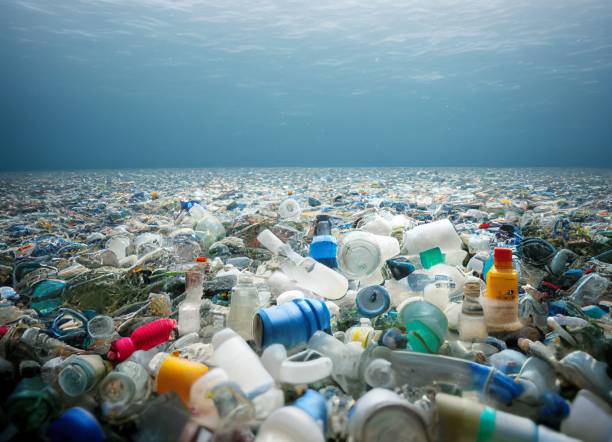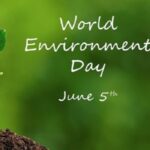
The global struggle to tackle plastic pollution took a significant turn as discussions at the United Nations (UN) face mounting opposition over the extent to which plastic production should be curbed. While negotiators have been working toward a treaty aimed at reducing plastic waste and preventing further environmental degradation, disagreements over how to regulate plastic production have sparked intense debates, putting the hopes of a meaningful international agreement at risk.
The negotiations, which are part of ongoing efforts to create a legally binding global treaty on plastic pollution, have reached a critical juncture. The issue at the heart of the dispute is whether to include restrictions on plastic production in the treaty, alongside measures focused on reducing plastic waste and improving recycling. Environmentalists and many small island nations argue that curbing plastic production is essential to tackling the crisis, while major plastic-producing countries and corporations are pushing back, concerned about the economic and industrial impact.
The Global Plastic Crisis – The issue of plastic pollution has become one of the most pressing environmental challenges of the 21st century. According to various studies, over 8 million tons of plastic enter the oceans every year, causing severe damage to marine life, ecosystems, and even human health. Plastic waste is non biodegradable, meaning it accumulates in landfills, oceans, and other natural habitats, where it can persist for hundreds of years.
Much of the plastic waste comes from single-use plastics such as bags, bottles, and packaging materials, which have become ubiquitous in modern society. The production of plastic has increased dramatically since the mid 20th century, with billions of tons of plastic being produced annually. While plastic is an incredibly versatile and inexpensive material, its environmental impact has become impossible to ignore.
In addition to the environmental hazards posed by plastic waste, there are concerns about the health risks associated with plastic pollution. Microplastics, tiny particles of plastic that result from the breakdown of larger plastic items, have been found in water sources, food, and even in the air. These particles can be harmful to both wildlife and humans, raising alarms about the long-term health effects of widespread plastic contamination.
The UN’s Plastic Treaty Efforts – The UN has recognized the severity of the plastic pollution crisis and has been actively working toward a global treaty to address the issue. In 2022, the UN Environment Assembly (UNEA) adopted a historic resolution to begin negotiations on a global plastic treaty. The aim of the treaty is to create a comprehensive framework for reducing plastic pollution, promoting recycling, and managing plastic waste.
Since then, negotiators have been meeting regularly to hammer out the details of the treaty. The goal is to produce a legally binding agreement that will set global standards for plastic production, recycling, and waste management. However, the negotiations have been complex, with countries and industries divided over the specifics of the treaty, particularly when it comes to controlling plastic production.
Some countries, particularly those heavily impacted by plastic pollution, have pushed for stringent measures to curb plastic production. These include binding targets for reducing plastic output and restricting the production of certain types of plastics that are especially harmful to the environment. Small island nations, which are particularly vulnerable to the impacts of plastic pollution, have called for bold action to address the root causes of the crisis.
On the other hand, major plastic-producing nations and industries have expressed concerns about the economic implications of such measures. Countries with large petrochemical industries, such as the United States, China, and Saudi Arabia, are wary of policies that would limit plastic production, arguing that it would harm jobs, businesses, and economic growth. Corporations in the plastics industry, including manufacturers of single-use plastics, have lobbied for more lenient provisions in the treaty, emphasizing the need to balance environmental goals with economic considerations.
Key Points of Contention – The central issue of the debate centers on the scope of the treaty’s provisions related to plastic production. Proponents of restricting plastic output argue that the production of plastic is the root cause of the pollution problem. Without reducing the amount of plastic being produced, they argue, efforts to address plastic waste and improve recycling will be insufficient. Environmental groups, such as Greenpeace and the World Wildlife Fund (WWF), have been vocal in advocating for strong measures to curb plastic production and have called for legally binding commitments to reduce plastic output by a set percentage over the coming decades.
The treaty’s supporters point to the fact that global plastic production has been increasing steadily, and that current efforts to improve recycling and waste management are not enough to reverse the damage. They argue that a comprehensive solution must address both production and waste in order to effectively combat plastic pollution.
However, countries like the United States, which has a strong plastics industry, have resisted such measures, arguing that limiting plastic production could lead to economic instability and loss of jobs. The U.S. delegation has pushed for a focus on improving waste management and recycling infrastructure, rather than curbing plastic production. Other major plastic producers, such as China and India, have also expressed concerns about the economic consequences of reducing plastic output.
The disagreement over production limits has raised fears that the negotiations may end in a watered-down treaty that fails to tackle the issue at its core. While many environmental groups and smaller nations are advocating for strong measures to curb production, others fear that the treaty will end up focusing on less controversial issues, such as recycling and waste management, without addressing the fundamental problem of plastic overproduction.
Corporate Influence on the Negotiations – The role of the plastics industry has also played a significant part in shaping the treaty negotiations. Large multinational corporations that rely on plastic production, including consumer goods companies, packaging manufacturers, and petrochemical firms, have significant lobbying power. These corporations have raised concerns about the potential economic consequences of reducing plastic production and have pushed for provisions that would allow them to continue producing plastic, albeit with greater emphasis on recycling and waste management.
There are also concerns that corporations could influence the treaty to focus on less stringent regulations, such as promoting voluntary initiatives or self-regulation within the industry. Critics of this approach argue that voluntary commitments are insufficient to address the scale of the plastic pollution crisis and that binding regulations are necessary to drive real change.
Some environmental organizations have accused large corporations of using their influence to dilute the treaty’s provisions and avoid making meaningful changes to their production practices. There are also fears that corporate interests could undermine efforts to implement a global ban on certain types of plastic, such as single-use plastics, which are among the most harmful to the environment.
Potential Impacts on Developing Nations – Another aspect of the treaty negotiations that has drawn attention is the potential impact on developing nations. While many developed countries are actively involved in the treaty negotiations, developing nations have raised concerns about the costs associated with implementing stringent plastic production cuts. For countries that are heavily reliant on plastic production as part of their industrial and economic base, such as China and India, the transition to more sustainable production practices could be challenging.
At the same time, many developing countries are also among the hardest hit by plastic pollution, particularly in regions where waste management infrastructure is inadequate. These nations are calling for stronger global commitments to improve recycling and waste management systems, as well as financial support to help them transition to more sustainable plastic production practices.
The treaty is expected to include provisions for financial assistance and technology transfer to help developing nations address plastic pollution. However, the level of support and the mechanisms for delivering it remain points of contention in the negotiations.
The Path Forward: Prospects for Agreement – As the negotiations continue, it remains uncertain whether a meaningful agreement can be reached. The debate over curbing plastic production has highlighted the complex challenges of balancing environmental concerns with economic realities. While there is broad agreement on the need to address plastic pollution, finding a consensus on how to tackle plastic production has proven difficult.
The outcome of the negotiations will likely have significant implications for global efforts to reduce plastic pollution. If an agreement can be reached that includes strong provisions to limit plastic production, it could mark a historic step toward addressing one of the world’s most pressing environmental crises. However, if the talks break down or result in a weak agreement, it could signal a failure of the international community to take decisive action on plastic pollution.
In the coming months, negotiators will likely continue to push for compromise solutions that address the concerns of both environmentalists and industry stakeholders. Ultimately, the success of the treaty will depend on the ability of the international community to find common ground and take bold action to tackle plastic pollution before it reaches even more catastrophic levels.




































Leave a Reply